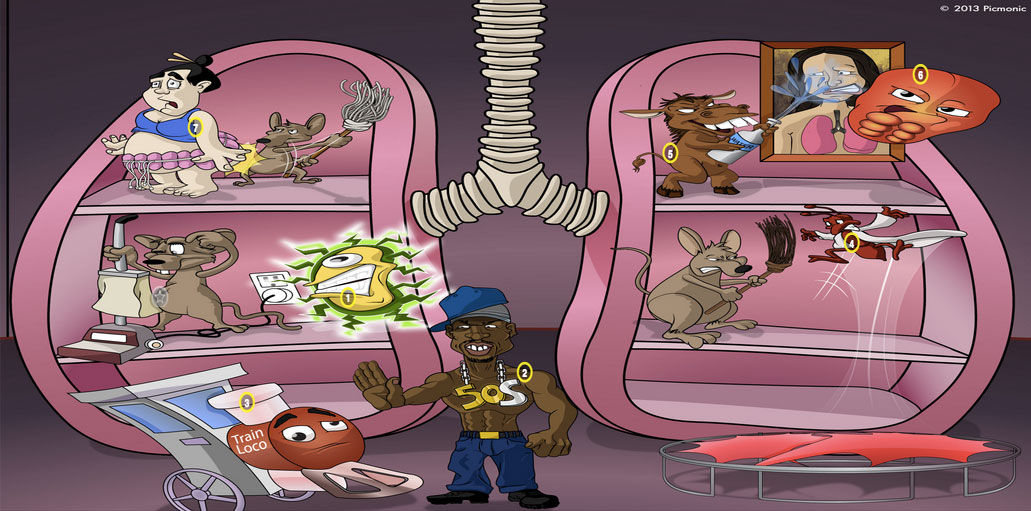When I heard about Picmonic, I actually let out a little yelp of excitement and anger. Excitement because I wish I had such a tool while I was in the first and second year of medical school; anger because I thought about building just such a company about a hundred times but never went through with it. Picmonic was developed too late for my first years of medical school, but I keep hearing great things about it from our medical students. Because of all the buzz, I recently downloaded their trial software to test it out and I am impressed. The idea behind Picmonic is to develop absurd images in order to help memorize difficult to understand concepts. Each Picmonic image contains a number of important pearls that should be memorized. Picmonic walks the learner through the image to highlight each pictoral 'mnemonic'. The staff at Picmonic were kind enough to send us their image for clindamycin [shown below]. In this way, any time a student is placed in a situation (in the hospital or on an exam) where he/she must remember these important concepts, the absurd image will pop right into their head, increasing memory recall.
Increased memory retention using absurd images is actually a well-known phenomenon in teaching organizations. In fact, the best memorizers in the world often use abstract and absurd imagery to memorize lists of random words and numbers. The developers at Picmonic openly state that their software increases memory retention by "300%" and may increase scores on exams by "50%". These numbers seem a bit outrageous, but they recently published their results in a peer reviewed journal (pub med link) and they seem to have some evidence to support their claims. Thousands of medical students are using their software and I have never heard anyone unhappy with the purchase. Some use it far more than others, but everyone who purchases the resource appears to be quite happy. Of course, the utility of this type of device is likely more useful to those students who are more visual, but its effect on memory retention is likely to be universal.
If you haven't tried it out, go to their website, www.picmonic.com, and download their free trial. This is a great resource.







 My name is Andrew and I am a first year resident training to be an ophthalmologist. I created ShortWhiteCoats to provide medical students, residents, and the public with all the information I spent so many hours looking for during medical school.
My name is Andrew and I am a first year resident training to be an ophthalmologist. I created ShortWhiteCoats to provide medical students, residents, and the public with all the information I spent so many hours looking for during medical school.








